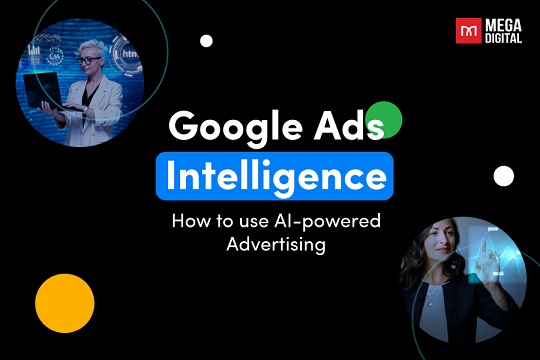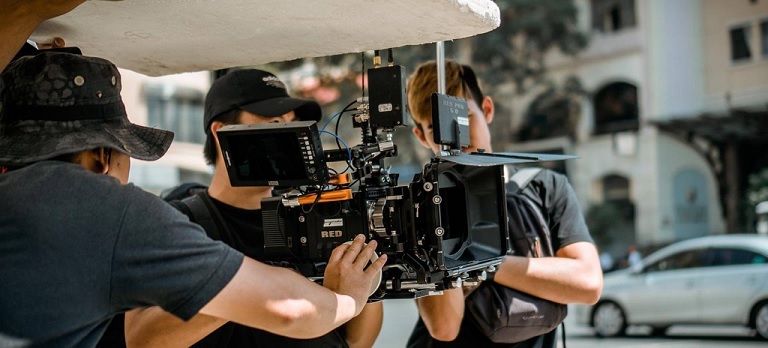Artificial Intelligence (AI) and Machine Learning (ML) have revolutionized the way we approach online advertising. In our campaigns, we now have the ability to analyze large volumes of data, understand complex patterns, and make predictions that inform our advertising strategies. Google Ads, as a leading platform in the digital marketing sphere, has integrated these technologies to help advertisers like us optimize ad performance and enhance return on investment.
As we integrate AI and machine learning into our Google Ads campaigns, we unlock new potentials for real-time bidding, targeting, and personalization. These tools empower us to make data-driven decisions, automate routine tasks, and focus on creating more effective ads. The automated bidding strategies, for instance, use machine learning to adjust our bids in real-time, aiming to maximize the results based on the objectives we have set.
Google Ads have benefitted from the inclusion of AI and ML. This is done by enhancing our ability to target the right customers. This strategy is based on the principle of defining the target audience. It is based on user behavior, search queries, and consumption of similar products. This level of customization is essential. This is to make sure that the ads reach the people. And are also relatable to the target audience. This increases the chances of an ad being seen and converted too.
Using AI and machine learning in Google Ads has revolutionized digital advertising by offering advanced tools and capabilities to optimize campaign performance. One key feature is Google Ads conversion tracking, which leverages AI algorithms to analyze user behavior and conversion patterns. By harnessing AI and machine learning, advertisers can automatically adjust bidding strategies, target audiences more effectively, and optimize ad creatives based on real-time data insights. This proactive approach improves ad relevance, enhances targeting precision, and ultimately drives higher conversion rates. Incorporating AI and machine learning into Google Ads not only streamlines campaign management but also maximizes ROI by ensuring ad spend is allocated to the most impactful strategies.
Leveraging AI for Enhanced Google Ads Performance
We can make use of AI and machine learning in Google Ads. We can optimize processes that require advanced knowledge and decision-making based on data analysis. It is done by ensuring enhanced performance for your campaigns. This is what these technologies do. It improves smart bidding strategies, audience targeting, and content optimization.
Understanding AI and Machine Learning Fundamentals
Artificial intelligence and machine learning are crucial to contemporary advertising technology. They can be used to process massive data sets. And identify trends to guide our ad campaigns. The use of these technologies in Google Ads powers automated bidding algorithms. It also helps to optimize ad delivery to maximize the number of people who see our ads.
- AI (Artificial Intelligence): Enables systems to accomplish the work. Mainly which usually requires human intellect.
- Machine Learning: A branch of AI that uses data to identify patterns and increase in proficiency through experience.
Smart Bidding Strategies and Automation
Machine learning in Google Ads is a feature. It optimizes for conversions or conversion value in every auction, which is called “auction-time bidding. ” Therefore, we can set bids for each person in the context of different signals. Such as device, location, and time of day, to predict how well each ad will perform.
- Automated Bidding Strategies: Target CPA, ROAS, Maximize Conversions, and Enhanced CPC.
- Data-Driven Insights: Automated bidding uses machine learning results to predict future actions. And adjust bids based on previous results.
Optimized Targeting and Audience Expansion
Machine learning and AI help in maximizing targeting options in Google Ads. The power of these technologies is that they can detect new groups of users. This is for those who have not yet been targeted. Also, they have a high probability of converting and expanding their reach accordingly. Performance Max campaign is a new type of automated campaign for performance goals. It leverages machine learning to serve ads across Google’s full advertising network to reach customers wherever they are.
- Optimized Targeting: It is a form of machine learning that helps in finding new target segments.
- Audience Expansion: This enables us to target the same audience that can turn into customers using data-driven insights.
Responsive Search Ads and Content Optimization
The process of developing Responsive Search Ads is an AI-based development. We will submit several headlines and descriptions. Then Google Ads will automatically generate and run various combinations based on machine learning algorithms. It is to see which ones produce the best results. This helps to dynamically optimize our ads based on performance.
- Responsive Search Ads: Utilize machine learning to identify the combination of ad components that is most effective.
- Ad Strength Indicator: Helps to understand the performance of ad content in terms of their relevance, quantity, and diversity for further optimization.
Integrating AI with Google Ads for Business Growth
The use of AI in Google Ads pushes businesses further. This is through advanced technology and information for more successful conversion, strategy optimization, and advertising management.
Maximizing Conversions with AI-Powered Tools
Google Ads will also allow us to use Artificial Intelligence features. Such as Smart Bidding and Responsive ads to maximize our conversions. Smart Bidding aims to deliver the optimal CPC to achieve your return on ad spend (ROAS) goal based on user signals and conversion history. Variable Creative works to change the creative components of Ads. It’s based on user preferences and increases sales.
Harnessing Data-Driven Insights for Decision Making
With the help of machine learning, we can define trends with the help of massive amounts of data from Google Analytics. It is regarding user behavior and shopping habits. This helps to customize our ad strategies to suit our audience. It also improves advertising efficiency by increasing purchases.
Continuous Monitoring and Campaign Adaptation
This means that we constantly learn from campaign performance data. And make changes to campaigns as they happen and optimize them. This approach helps to keep our strategies fresh. And taking into consideration the market demands and to optimize the conversion rate.
Best Practices for Implementing AI in Ad Campaigns
Embracing best practices is essential in the effective application of AI in ad campaigns. We keep databases with organized data and identical reporting to achieve clarity and actionability. Combining continuous monitoring with machine learning in Google Ads. It enables us to further optimize campaign effectiveness. Read more at Constellation Marketing.

